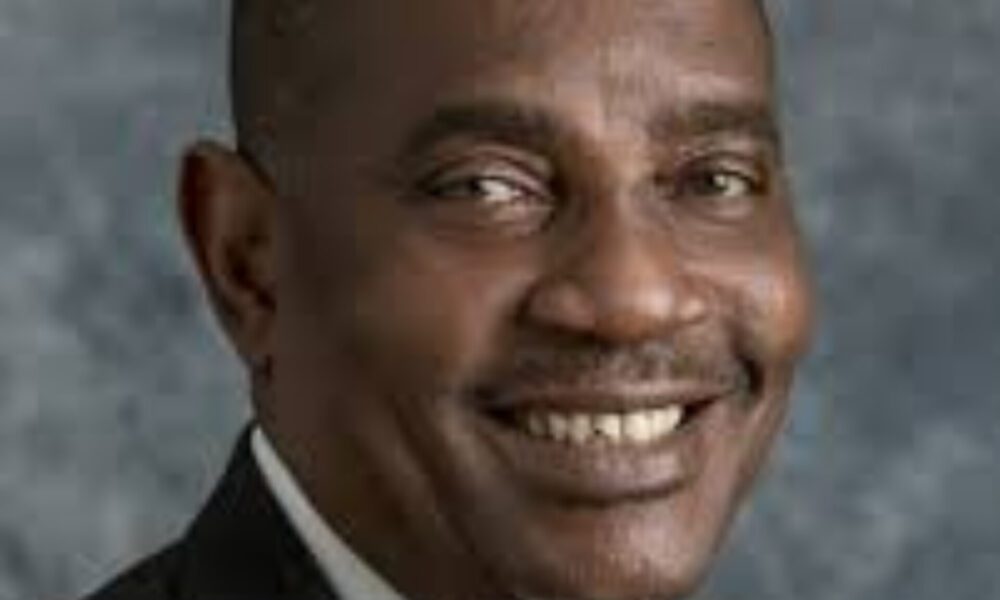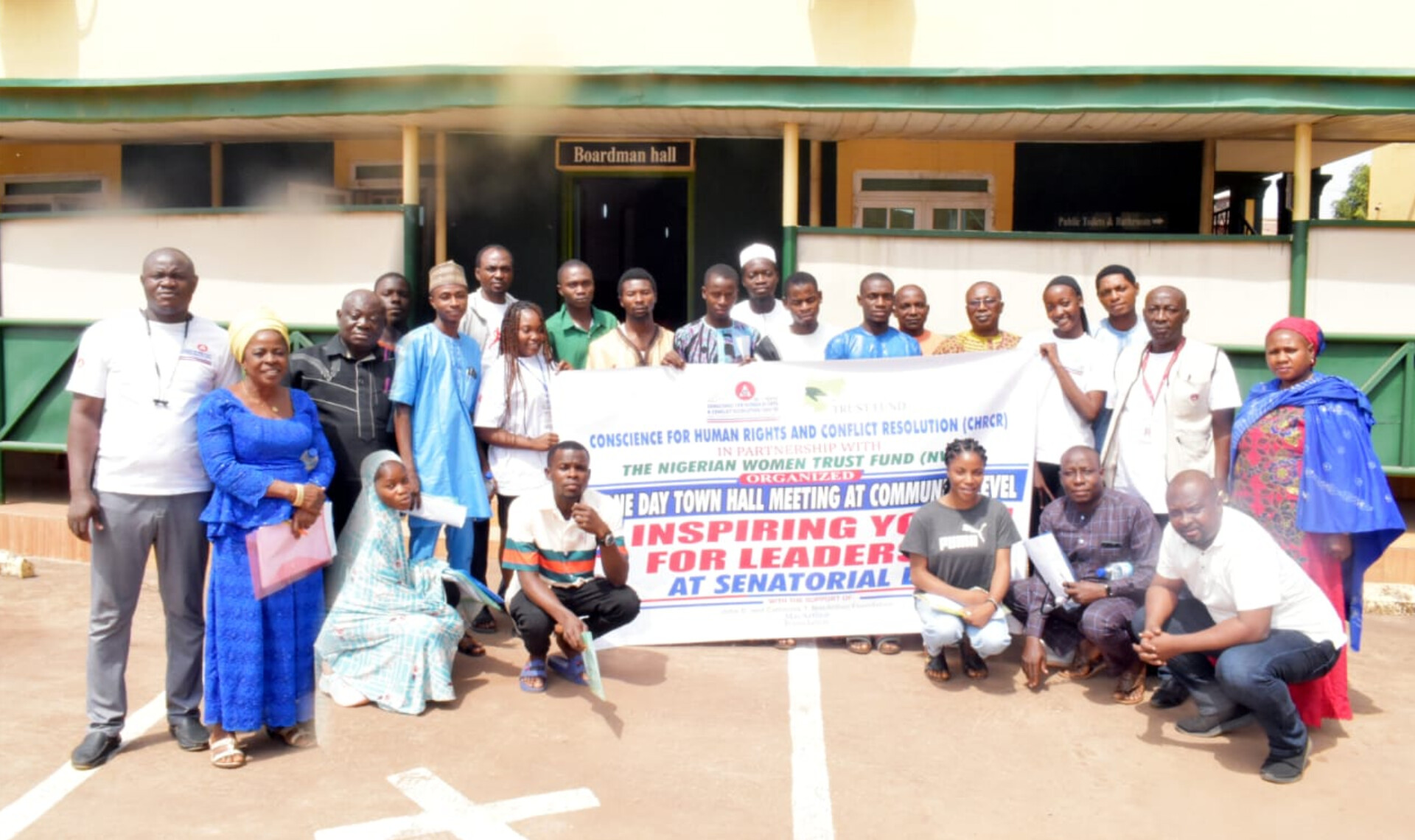***As Arase recommends citizens’ engagement
***Wike expresses confidence that efforts against insecurity in FCT is yielding results
The chairman Police Service commission Dr. Solomon Arase on Thursday recommended citizens’ engagement in the fight against criminality through a multi-faceted approach that involves building trust, empowering citizens and fostering a sense of shared responsibility for public safety.
Arase’s recommendation was made in a paper titled: “Strenghtening Security: Engaging Citizens in Nigeria’s fight against crime and criminality” which he presented at the Nigeria Union of Journalists (NUJ)/New Star Newspaper organised National Security Comference on Thursday, at the NAF Conference Center, Abuja

proffered a lasting solution to the heightened security challenges in the country that has almost defied all possible solution,
“By implementing initiatives such as community policing forums, crime reporting apps, and neighborhood watch programs, communities can work together with law enforcement to prevent crime and create safer, more vibrant neighborhoods.
There are several initiatives that can be implemented to engage the citizenry in crime fighting, including Community Policing Fora therough Establishment of community policing fora where citizens can meet with law enforcement officials to discuss crime trends, share information, and collaborate on crime prevention strategies.
Accoeding to him, the fora can help build trust and cooperation between the community and law enforcement and empower citizens to take an active role in crime prevention.
Another initiatives Crime Reporting Apps is in developing mobile applications that allow citizens to report crimes anonymously and securely. “These apps can provide a platform for citizens to share information about suspicious activities, crimes, and other concerns with law enforcement, helping to improve response times and reduce crime rates.
Neighborhood Watch Programs he said encourage citizens to form neighborhood watch programs to monitor and report suspicious activities in their communities.
He said, the programs can help deter criminals and provide an extra layer of security for residents.
Explaining further he indicated that Education and Awareness Campaigns is crucial to inform citizens about crime prevention strategies, importance of reporting crimes, and how to stay safe.
“These campaigns can be conducted through community meetings, social media, and other channels.
“Establishing volunteer programs that allow citizens to contribute to crime prevention efforts. Volunteers can assist law enforcement with tasks such as patrolling neighborhoods, conducting safety audits, and organizing community events.
“Organizing citizen patrols where trained volunteers patrol neighborhoods and report suspicious activities to law enforcement. These patrols can help deter criminal behavior and provide a visible presence in the community.
He canvassed for engaging young people in crime prevention efforts through initiatives such as youth mentorship programs, after-school activities, and community service projects. “These programs can help keep young people engaged and provide them with positive outlets for their energy and creativity.
Other solutions he said should include establishing victim support services that provide counseling, legal assistance, and other support to crime victims and their families.
“These services can help victims recover from the trauma of crime and provide them with the resources they need to rebuild their lives.
He reiterated the need to encourag citizens to participate in civic activities such as town hall meetings, community cleanups, and local government initiatives.
“This can help foster a sense of community and collective responsibility for crime prevention.
“Forming partnerships between law enforcement, businesses, and community organizations to develop and implement crime prevention strategies can leverage resources and expertise from multiple sectors to address crime more effectively.
The former inspector General of police said the fight against crime in Nigeria is a complex and multifaceted challenge that requires the collective efforts of all stakeholders, including government agencies, law enforcement, community leaders, and individual citizens. While progress has been made in some areas, such as the establishment of specialized agencies and the implementation of targeted interventions, much work remains to be done to address the root causes of crime and create a safer and more secure environment for all Nigerians.
“One of the key lessons learned from the experiences of other countries is the importance of engaging the citizenry in crime prevention efforts.
“Initiatives such as community policing, neighborhood watch programs, and crime reporting apps can empower citizens to take an active role in keeping their communities safe.
“By building trust and cooperation between law enforcement and the community, these initiatives can help reduce crime rates and improve public safety.
He also canvassed for the underlying socioeconomic factors that contribute to crime are addressed for long-term success.
“This includes investing in education, job creation, and social support programs that provide individuals with alternatives to a life of crime. Strengthening governance and the rule of law, promoting transparency and accountability, and addressing corruption are also essential for creating an environment where crime cannot thrive.
“Finally, it is important to recognize that crime prevention is a shared responsibility that requires the collaboration of all stakeholders.
“This includes government agencies, law enforcement, community organizations, businesses, and individual citizens. By working together, we can create a safer and more secure Nigeria for future generations.
The Minister of the Federal Capital Territory Nyesome Wike in his welcome address acknowledged that over the past few months, the nation’s capital has faced its fair share of security challenges, as have many regions across our great nation.
Represented by the acting Permanent Secretary of the ministry Dr. Shamsu Yahaya said, news, especially of kidnappings and the infamous “one chance” commercial car robberies made headline news.
“I am however pleased to report that through concerted efforts and the dedication of our security agencies, we have made significant strides in addressing these challenges.
“Our approach has been multifaceted, combining robust law enforcement measures with proactive community engagement initiatives.
“Furthermore, we have prioritized community-oriented policing approaches, fostering trust, and cooperation between law enforcement agencies and the communities they serve. By empowering local stakeholders and investing in grassroots initiatives, we have cultivated a culture of vigilance and resilience at the grassroots level.
“My tour of the six Area Councils has galvanized the populace and reassured them that they are not alone in this fight to safeguard their lives and property.
“Nevertheless, our work is far from over. As we gather here today, let us reaffirm our collective commitment to safeguarding our nation’s security and advancing our development agenda.
He concluded saying he would like all and sundry to leverage the insights shared during the conference to formulate robust policies, forge strategic partnerships, and mobilize resources toward a safer, more prosperous future for all Nigerians.



